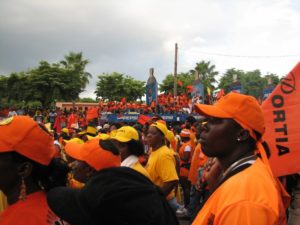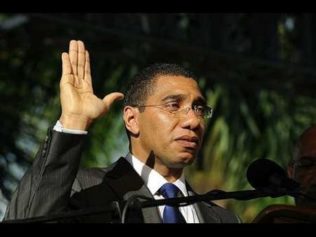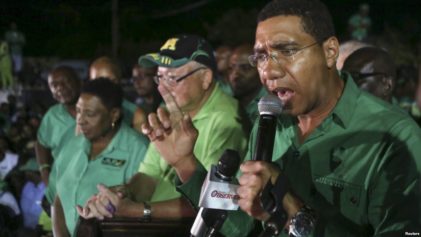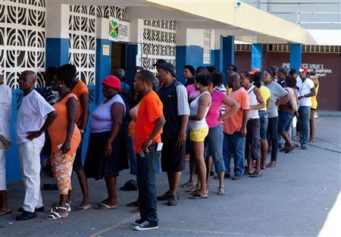
Hopes for even one or two televised debates were finally dashed when the incumbent People’s National Party confirmed in a letter to the Jamaica Debates Commission that they would not participate in any debates, contending that there were, in addition to other matters, unresolved issues related to the construction of Opposition Leader Andrew Holness’ home.
Some media practitioners were privately expressing their wish to see an end of the election campaign, so they could report on other matters — but local blogger Kate Chappell publicly commented on the PNP’s final decision.
To borrow a term coined with regards to feminist theory, this is truly making the personal political.
The refusal is being regarded as an act of fear, with people speculating that the Prime Minister is too scared to debate the Opposition Leader. She has long defended herself from the stigma of being from a poor and uneducated background. But she last week dismissed those claims, stating that she has participated in the National Political Debate before.
In any case, this seems like petty politics. The people have a right to be as well-informed as possible. They have a right to know where their leaders stand. They have a right to see how their leaders perform under pressure. They have a right to see them think on their feet. They also have an obligation to participate in and encourage a healthy democracy by exercising their right to vote. This is all a Platonic ideal, of course. In fact, only about half of Jamaica’s population votes in national elections, despite what you see on the streets during rallies.
On February 17, two last-ditch attempts to revive a public political dialogue failed.
Firstly, the RJR Group, Jamaica’s largest media house, sought to find a substitute for the debates and proposed a “news forum” on Television Jamaica, whereby each party would be questioned separately on its proposals and policies.
Read more at www.globalvoices.org


